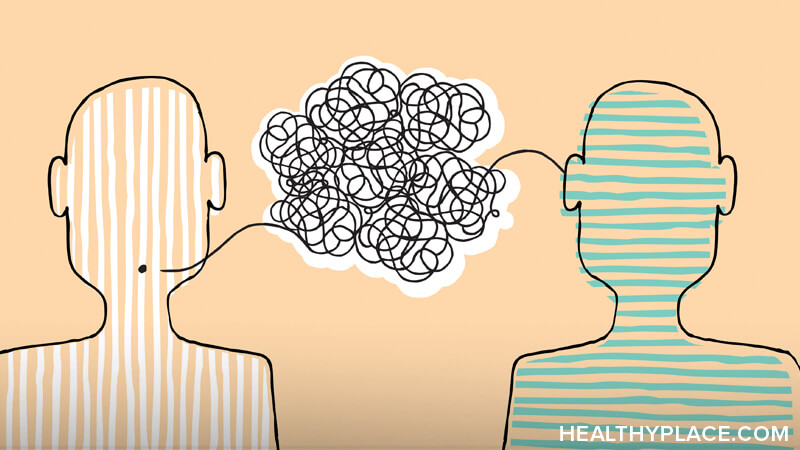Learning Communication Skills Is Important to End Self-Harm

Learning better communication skills can help you end self-harm, and communication does not always have to be verbal. Everything about the way we present ourselves in front of other people is intended, whether consciously or not, as a way to communicate something. Communication is not just limited to verbal interactions. It is not even limited to just deliberate physical movements and facial expressions. Everything from the way we dress, the way we walk, what we order at a restaurant, and even those parts of ourselves we think we are hiding, including -- yes -- our self-harm, are ways of making our thoughts, emotions, and sense of identity socially readable. Self-harm is an unhealthy communication skill, and learning new skills will help you stop self-harming.
Why Communication Skills Are Important
All those self-help books are right: communication skills are key. There's a reason decades-long relationships and friendships break down due to simple misunderstandings that escalate into conflict, resentment, and silence. And the reason is that making people truly understand the complexities and depths of your inner world is difficult, if not basically impossible ("Lack of Understanding of Mental Illness").
Words are not always enough. That is why we choose our jobs, why we name our pets, why we join clubs, why we learn hobbies, why we create art, why we have favorite radio stations, and why we buy products of a certain brand over and over again.
And for most people, in day-to-day life, this is enough. And when it's not enough, they turn to friends and family for support. They talk about their concerns and anxieties with the people in their lives, and in doing so, they help them understand.
But this verbal communication skill does not always come easily. For some, articulating the nuances of these inner experiences does not seem, for a variety of reasons, like a viable option ("Can People Without a Mental Illness Understand Us?").
This is where self-harm comes in.
Why Self-Harm Thrives Where Communication Skills Fail
Self-harm is, among many other things, a method of communication. It may not seem obvious due to the taboo that surrounds the act as well as the furtive secrecy of those who engage in it, but self-harm is a way of communicating pain.
Self-harm acts as a substitute for all the things that cannot be put into words.
Interpersonally, self-harm bridges the gap that forms between you and other people when communication fails and inner turmoils that need to be externalized, expressed and heard by someone who is not you in order to surrender the burden of holding onto them remain trapped inside of you.
Intrapersonally, self-harm proves that your inner life is real. Without the validation of being recognized by others, it can feel as though your feelings are imagined. This sense of invalidation combined with the pressure of being alone with a problem can make you susceptible to self-harm.
Learning effective communication skills is a weapon. Consider it the first line of defense against self-harm. Something as simple as saying something out loud and having another person recognize it can make all the difference in the world.
APA Reference
Chang, K.
(2018, October 17). Learning Communication Skills Is Important to End Self-Harm, HealthyPlace. Retrieved
on 2026, January 16 from https://www.healthyplace.com/blogs/speakingoutaboutselfinjury/2018/10/learning-communication-skills-is-important-to-end-self-harm
Author: Kayla Chang
You are right when you acknowledge that communication skill exhibits crucial step to end self-harm. So, it is of great importance to improve and develop constructive communication way in order to perfect interpersonal relationships, as substantial element of global mental welfare. In this direction we should hone our verbal capacity in formal and contents aspect. Beside this precondition of satisfying communication we ought to compliance verbal communication with emotional communication suiting it with social context. To be good and pleasant person in any interpersonal relationship it must be careful and compassionate listener. These and many others interpersonal goodwill performances will improve our communication skills. In addition, we could't be agreable interlocutor with hidden ill-will intentions. Malevolent attitudes we may to disguise with pleasing words but not with emotional communication as infrastructure of body language.